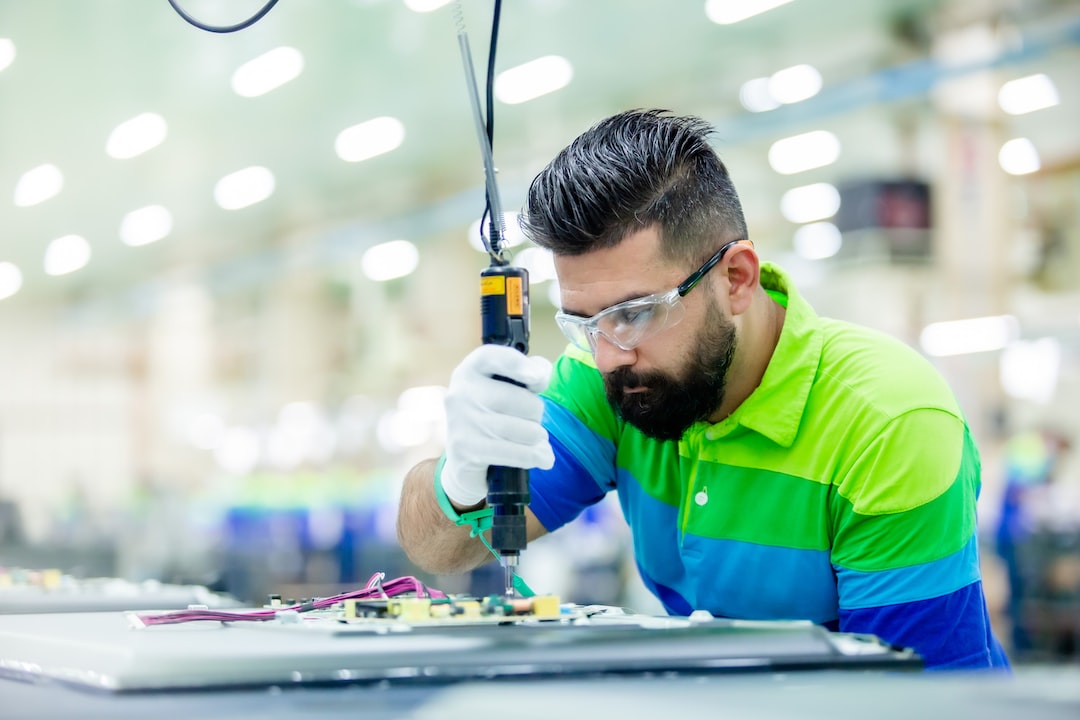The Rise of Smart Factories and Industry 4.0
From the advent of the steam engine to the present day, technological advancements have consistently pushed the boundaries of human innovation. The industrial revolution of the 18th century revolutionized manufacturing processes, and with each passing era, factories have become more efficient and productive. Today, we find ourselves on the cusp of another transformative revolution in the manufacturing sector – the rise of smart factories and Industry 4.0.
Industry 4.0, also known as the fourth industrial revolution, refers to the integration of advanced technologies into the manufacturing landscape. With the help of cutting-edge technologies such as artificial intelligence, Internet of Things (IoT), big data analytics, robotics, and automation, smart factories are set to revolutionize the manufacturing industry as we know it.
One of the key drivers of the rise of smart factories is the concept of interconnected machines and systems. In a smart factory, machines communicate with each other and humans through the internet, creating a seamless flow of information and collaboration. This enables real-time monitoring and control of the entire production process, resulting in increased efficiency, reduced downtime, and enhanced productivity.
The implementation of Internet of Things (IoT) devices is a crucial component of smart factories. These devices, such as sensors and actuators, collect and transmit data across the factory floor in real-time. By harnessing this vast amount of data, manufacturers can gain valuable insights into production processes, predict maintenance requirements of machines, and optimize overall operations. This data-driven approach empowers businesses to make informed decisions, improve quality control, and streamline the supply chain.
Artificial intelligence (AI) is another key element of smart factories. By leveraging machine learning algorithms and predictive analytics, AI can perform complex tasks that were once only possible for humans. AI-powered machines can identify patterns, predict faults, and make autonomous decisions, enabling manufacturers to achieve higher levels of accuracy and efficiency. From product design to quality control, AI is revolutionizing various aspects of the manufacturing process.
Automation and robotics play a significant role in the transformation of factories into smart factories. With the integration of robotics, mundane and repetitive tasks can be taken over by machines, freeing up human workers for more complex and creative responsibilities. Robots can operate 24/7, ensuring consistent production output and reducing the risk of human error. The use of robots also enhances workplace safety by minimizing exposure to hazardous conditions.
While the rise of smart factories brings forth numerous benefits, it also raises concerns about job displacement. As machines take over certain tasks, there is a fear that it could lead to unemployment. However, proponents of Industry 4.0 argue that it will create new job opportunities that require more advanced technological skills. Workers who can adapt and upskill themselves to work alongside smart technologies will remain relevant in the evolving manufacturing industry.
In conclusion, the rise of smart factories and Industry 4.0 represents a paradigm shift in the manufacturing industry. Through the integration of advanced technologies such as IoT, AI, automation, and robotics, smart factories are paving the way for increased efficiency, productivity, and innovation. While there are concerns about job displacement, the advent of Industry 4.0 also opens up new avenues for skilled workers. As we move forward, it is essential for businesses to embrace this new era and equip themselves with the necessary tools and skills to thrive in the increasingly digitalized manufacturing landscape.


